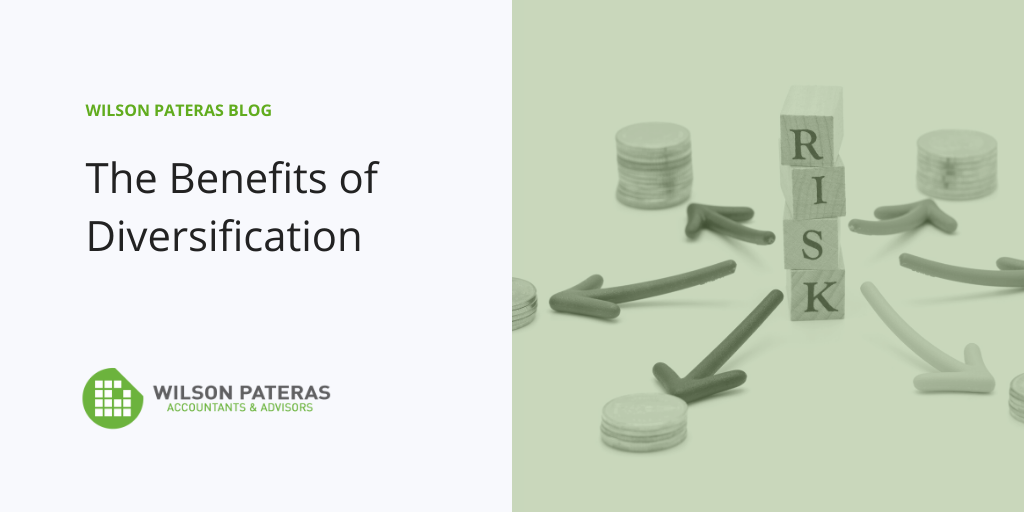One of the most important things that you can do for your financial security is to diversify your investments.
Diversification is the process of spreading investments across a variety of asset types in order to reduce risk. This involves strategically researching the best investment opportunities for your portfolio. From there, you can diversify your investments to enjoy fewer financial risks and safeguarded assets.
In this article, we break down all these advantages and what you can expect from each.
Diversification decreases the effects of market instability
One of the biggest benefits of diversification is that it helps to decrease the effects of a fluctuating market. This is a big advantage for providing more certainty in your investments.
When you invest in a variety of asset categories, you are essentially spreading your risk over many efforts rather than one.
For example, let’s say that you have most of your money invested in stocks. If the stock market crashes, you will likely lose a hefty amount. However, if you spread your funds out among stocks, bonds and commodities, then the crash may have less of an impact on your overall portfolio.
This is because each type of investment behaves differently during times of market volatility. For instance, while stocks may drop in value during a recession, bonds may actually increase in value as investors look for safe-havens. This way, you can ensure that at least some portion of your portfolio will be protected from these swings in the market.
Earn higher returns over time
Another benefit of diversification is that it can help you earn higher returns over time, mostly because you are taking advantage of additional trends and opportunities within each category. For example:
- Stocks tend to outperform other asset types over long periods of time
- Bonds usually provide steadier returns than stocks but with less potential for growth
- Commodities can be volatile but offer the potential for high returns if timed correctly
By investing in all three asset types, you give yourself the opportunity to capitalise on all three trends simultaneously, which can lead to significantly higher overall returns than if you only invested in one or two categories.
Helps achieve long-term investment plans
Diversification is also essential for helping investors achieve their future goals, by reducing the overall risk of your portfolio. This means you should still be able to meet your financial objectives, even if one or two investments take a hit.
For example, suppose you have a goal of retiring at age 65 with $1 million saved up. If you only invest in stocks, there is a chance that your portfolio will not reach your goal by the time you reach retirement due to market fluctuations .
However, if you invest your money across different asset categories (stocks, bonds, commodities), then you are more likely to reach or exceed your goal when you are ready to retire, as you are able to have a more stable rate of return. Portfolio diversification reduces the overall risk of your investment plan, despite what the market is doing.
Requires less active management
Another benefit of diversification is that investors can be more passive in managing their investments. Once you have invested in several asset types, there is not much else you need to do except sit back and wait for them to grow over time.
Helps keep your portfolio safe
Diversification can also help keep your capital safe during times of market volatility. For example, if the stock market crashes and all your stocks lose value, the bonds in your portfolio are more likely to maintain their value. This is because bonds are less volatile than stocks and therefore considered a more stable investment.
While diversification does not guarantee that you will make money or avoid losses, it is one of the most important tools you have at your disposal for increasing your chances of success. By investing in a variety of assets, you can reduce your portfolio’s overall risk and hopefully achieve long-term financial stability.
And, of course, if you need support, we are always here to provide you with reliable advice as financial planning advisors.
This is general advice only and does not take into account your financial circumstances, needs and objectives. Before making any decision based on this document, you should assess your own circumstances or seek advice from your financial adviser and seek tax advice from your accountants at Wilson Pateras Accountants & Advisors. Information is current at the date of issue and may change.
Wilson Pateras Accounting Pty Ltd is a related entity of Wilson Pateras Lending and Finance (VIC) Pty Ltd and Wilson Pateras Financial Planning Pty Ltd (Wilson Pateras Group). Where you are referred to a related entity by your adviser and take up lending or financial services, your adviser and the directors and shareholders of the Wilson Pateras Group do not receive any direct remuneration or benefit as a result of these referrals but may be entitled to profits as part of their ownership in each entity. You are free to engage your own preferred professional service providers should you prefer
This content has been prepared by Wilson Pateras to further our commitment to proactive services and advice for our clients, by providing current information and events. Any advice is of a general nature only and does not take into account your personal objectives or financial situation. Before making any decision, you should consider your particular circumstances and whether the information is suitable to your needs including by seeking professional advice. You should also read any relevant disclosure documents. Whilst every effort has been made to verify the accuracy of this information, Wilson Pateras, its officers, employees and agents disclaim all liability, to the extent permissible by law, for any error, inaccuracy in, or omission from, the information contained above including any loss or damage suffered by any person directly or indirectly through relying on this information. Liability limited by a scheme approved under Professional Standards Legislation.
